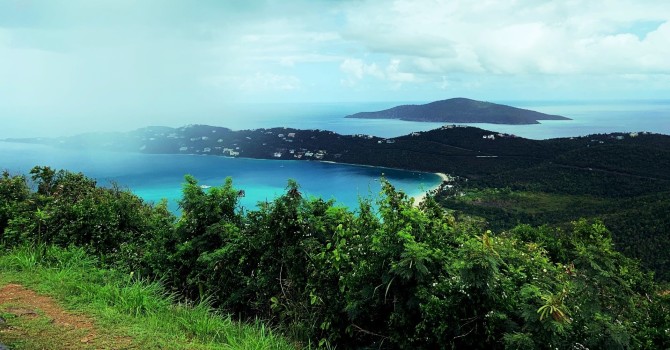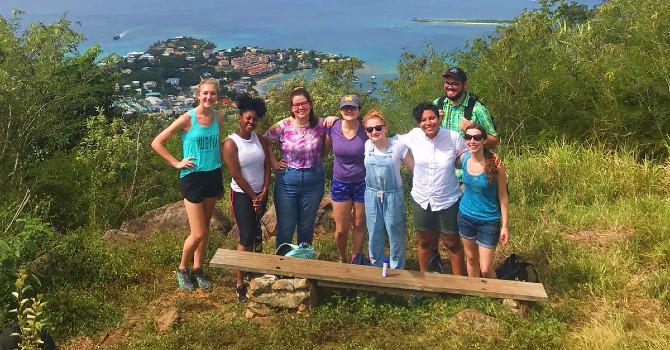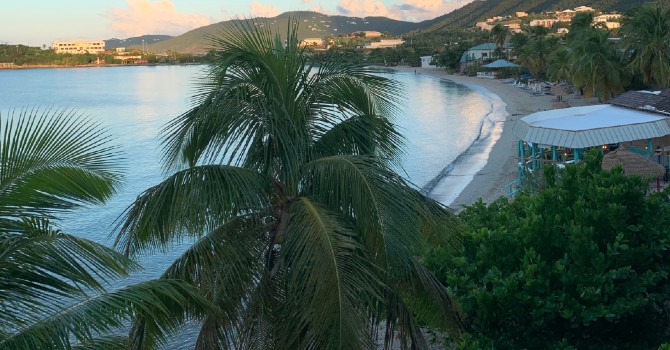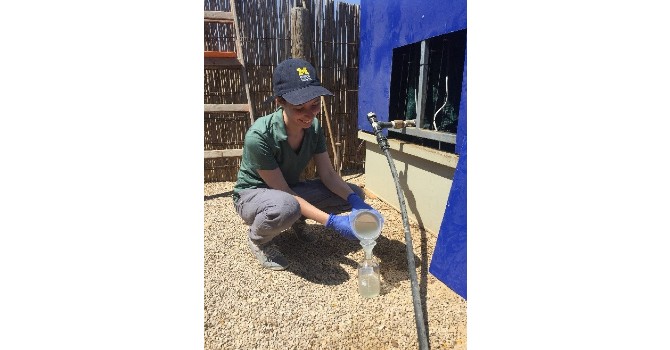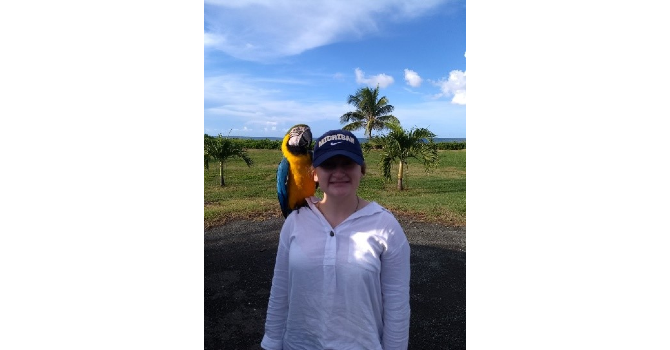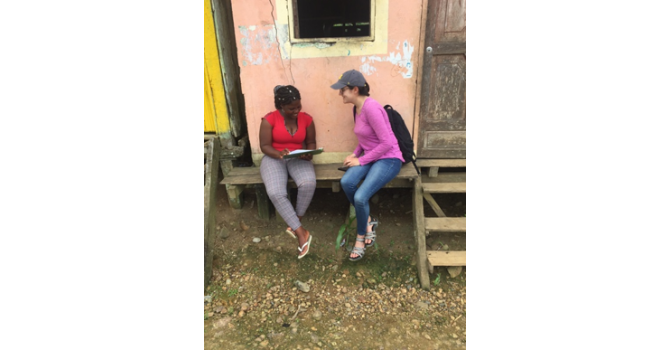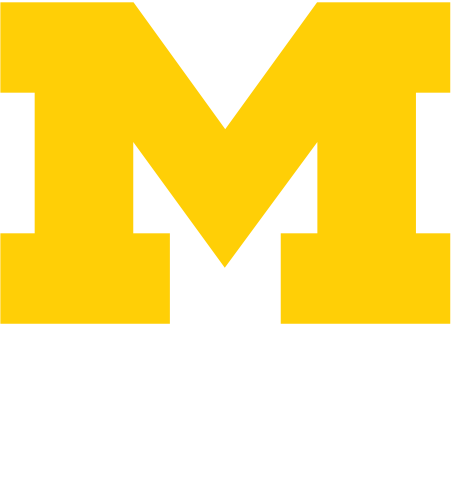Looking Forward and Creating Space
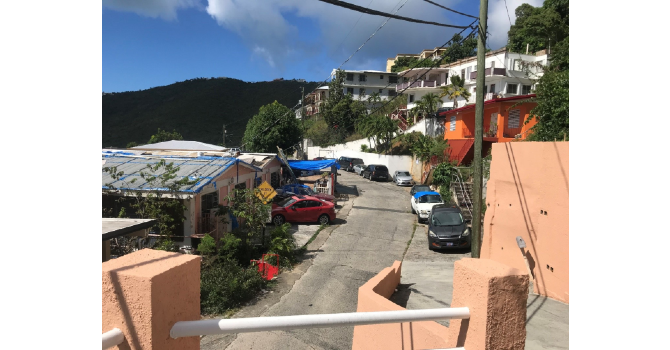
Christina Negrete, Nutritional Sciences Student
April 22, 2020, Community Partnership, Disaster Relief, Nutrition, Practice
Note: There was a temporary pause in the publishing of our blog posts as our team returned in early March to the rapidly changing nature of the Coronavirus in Michigan. We now wish to share the thoughts of students on their experiences just before the COVID-19 outbreak.
Being deployed to the U.S. Virgin Islands for a week is something that I will soon not forget. I knew what type of work was expected of us in theory, after all the meetings pre-deployment and training once we were there, but none of that prepared me for what the actual field experience would be like. Conducting the territory-wide CASPER assessment in teams that consisted of one other student and a local with previous experience working on the project taught me a lot. Before going in, I was nervous of the space I would be occupying and kept in mind that I am there to highlight others and their needs, and I was worried about what I may be able to contribute with my lack of experience in disaster relief and recovery. I thought that my background in nutritional sciences may not be applicable in this work, but I was able to put it to use to reassure at least one island resident while in St. Thomas. There was a woman in her 80’s who was concerned that she has been losing her appetite. Instead of alarming her, I was able to briefly explain that while it is something to be aware of, it isn’t rare for loss of appetite to occur with age. And I was able to provide reassurance and applaud her for the steps she was taking in ensuring she was still receiving some nutrition in the form of Ensure shakes. She showed us her stash of shakes and protein powder and was so happy to have company that she showed us out with music and a dance.
This interview took about an hour, and the survey was put together with about 20 questions that in theory should be run through in about 20 minutes at most. This wasn’t the only interview to exceed the timeframe, which shows a greater need the residents have. While we were there collecting data, we also unknowingly were serving as a support group. Many of the residents wanted and needed to be heard and reassured that someone still cares and that they haven’t been forgotten. These additional needs create data that goes uncaptured because it goes beyond what the CASPER was designed for.
Our time in St. Thomas was very different from St. Croix, from the lay of the land to the way we had to change how we interacted with the residents. They showed more skepticism in our reason for being there and found the surveying to be pointless. The residents here seemed a bit more defeated but at the same time, had stronger community ties amongst each other which made them also seem happier. Our team was met with quite a few refusals during the last day and aside from their skepticism, it might have also had to do with the fact that our team was comprised of nothing but students. This time, we weren’t fortunate in having a local with experience to help us navigate. We were left to figure out our own strategy in addition to going into unknown areas and not knowing who to approach.
St. Croix was a big success in that we were able to close out all of our assigned blocks and we were paired with locals with amazing previous experience that allowed us to more easily interact with the residents. However, St. Croix did not display the same community ties that St. Thomas did. I remember surveying an older Puerto Rican couple that shared their hardships with us and explained that they are still not as close to recovering as they should be had they received help that was promised in the past from the government. The husband was left to fix their torn apart roof on his own and when I asked if he felt like he could ask neighbors for help, he explained that neighbors are not reliable and that everyone there keeps to themselves and doesn’t help each other. Being able to conduct the survey in Spanish as a native Spanish speaker was great, but knowing that there are so many Spanish speakers on the island made us wonder why there hasn’t been a Spanish version of the survey developed already because it’s easy for things to get lost in translation and can lead to loss of data.
While the process may not have been perfect and left room for improvement, as many things do, this was a great experience. It was amazing to work in diverse teams with other professionals and learn from their experiences. This made me reflect on how close I am to finishing school but how much more I still have to learn – the learning process never ends and can only continue to grow through continued education in practice and field experience. It is important to never forget that the community’s experiences are what we need to tailor our public health work around and never the other way around and this process did a good job at that.

